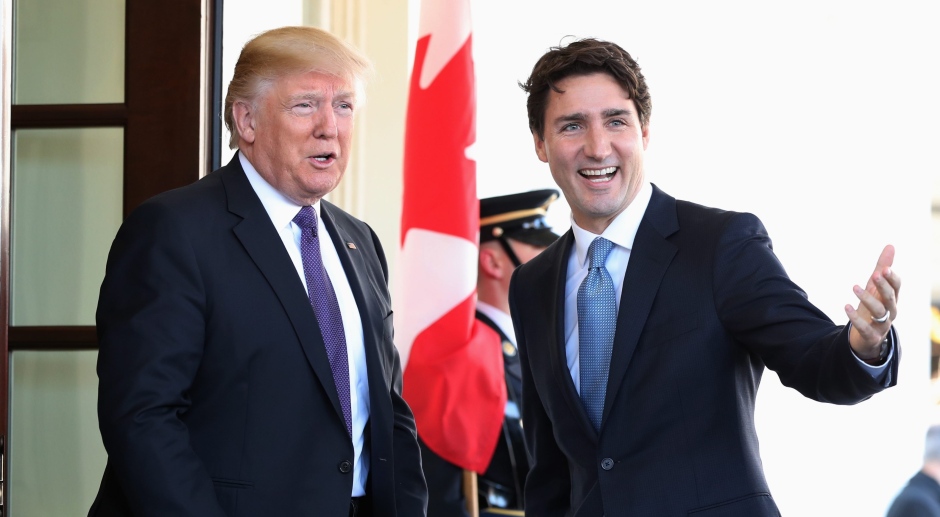Canada without its big brother?

Throughout the twentieth century and the first decade-and-six of the twenty-first, Canada has relied on its big brother to the south to help shape its economy
a Canadian Meat Business exclusive by Chuck Jolley
No shame in that, the U.S. has been the major player in the world’s economy for about three fourths of that time. In North America, what Washington has decided to do absolutely ruled the financial roost.
But the Trump administration has walked away from one economic gold mine and stands ready to abandon another. With the Trump walk-out, the Trans Pacific Partnership (TPP) has been reduced from the world’s largest trading block to just another interesting association of eleven trading partners. Now, he’s taking dead aim at the long-standing North American Free Trade Agreement (NAFTA), throwing some unacceptable requirements into the mix and daring Canada and Mexico to call his bluff.
Understanding that markets abhor uncertainty and that Trump is the master of that dodgy art, it might be time for Canada to just say no to their historic tight entanglements with the U.S. Over the years, his business partners have learned that when Trump talks himself into a corner, as he has with NAFTA, he does not come out willingly. Admitting he was wrong and reversing direction does not come easily to him. Better to run the ship aground than to change course.
“With the U.S. under Trump, the opportunity to fulfill that prognostication seems to be here, now!”
With Trump’s continuing work to disentangle the U.S. from its multi-lateral trading agreements to replace them with one-by-one deals with more countries than he realized ever existed, should Canada quit spending so much time looking south for economic leadership and work harder at forging more of its own deals, completely independent of the U.S.? The strength of at least two major industries – automobiles and agriculture – might depend on it. Recent negotiations prove those efforts can benefit the Canadian economy.
Several years ago, the Canadian Cattlemen’s Association noted that tariff free access for Canadian beef in Japan “remains a subject of interest in terms of the Trans-Pacific Partnership and also the Japan-Canada Economic Partnership Agreement (J-CEPA).” With the U.S. now out of the TPP, the prospects for greatly expanded trade in Canadian beef just entered the realm of certainty. Japan’s loss of interest in finalizing J-CEPA might mean that agreement is permanently off the table, though.
The CCA also said this about then-Prime Minister Stephen Harper’s announcement that Canada and the Republic of Korea had reached a free trade agreement, the first between Ottawa and an Asian country. “Under the terms of the agreement, the 40 per cent Korean tariff on fresh and frozen beef will be fully eliminated in 15 equal annual steps and the 18 per cent tariff on offals will be fully eliminated in 11 equal annual steps.”
As part of the agreement, Canada will eliminate 97.8% of its tariffs for goods imported from South Korea, and South Korea will eliminate 98.2% of its tariffs for goods imported from Canada. More specifically, Canada will eliminate tariffs on imported South Korean automobiles within two years of ratification and South Korea will eliminate a 40% tariff on imported Canadian beef within 15 years of ratification. The agreement had an effective date of January 1, 2015.
For a century-and-a-half, Canada has been labeled the country of the future, a nation with huge potential. With the U.S. under Trump taking a new look at its dominant world position and how it should – or should not – go forward, the opportunity to fulfill that prognostication seems to be here, now.












